Resources & Info
There are a number of topics that we get asked about all the time. These include:
- Autism and Mental Health
- Food issues
- Social Stories
- Understanding Autism
- Toileting
- Sensory issues
- Managing Meltdowns
- Visual Aids – to name just a few.
At the Toby Henderson Trust, we have an ongoing programme of FREE webinars available to all families that cover many of these topics. If you are looking for some answers or support, take a look at our webinar pages (under Events & Training).
Help us support awareness and understanding within communities
We are so passionate about doing what we can to help support awareness and understanding within communities, we have created a one-page poster that can be downloaded, shared, printed and displayed with tips to make our communities more inclusive.
With the help of some of our neurodivergent team members we have created a one-page poster that can be downloaded, shared, printed and displayed with tips to ‘do our bit’ in making our communities more inclusive and simply spreading love & understanding in the Northeast.
To download the poster, please click here.
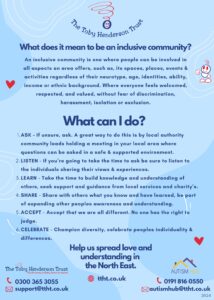
Looking for a Therapist to support an autistic person?
Counselling Directory is a trusted platform that makes it easier for individuals to find professional counsellors, all of whom have provided proof of membership with a recognised professional body. They also highlight organisations offering free or low-cost counselling, helping to ensure support is accessible to everyone who needs it.
Their autism page offers supportive information and guidance for individuals, parents, and carers. The page explores how counselling can help, what to expect, and how to find the right therapist. As a trusted platform referenced by the NHS and Mind, they are dedicated to offering trustworthy and helpful information for those who need it most. Click here for link to their autism page.
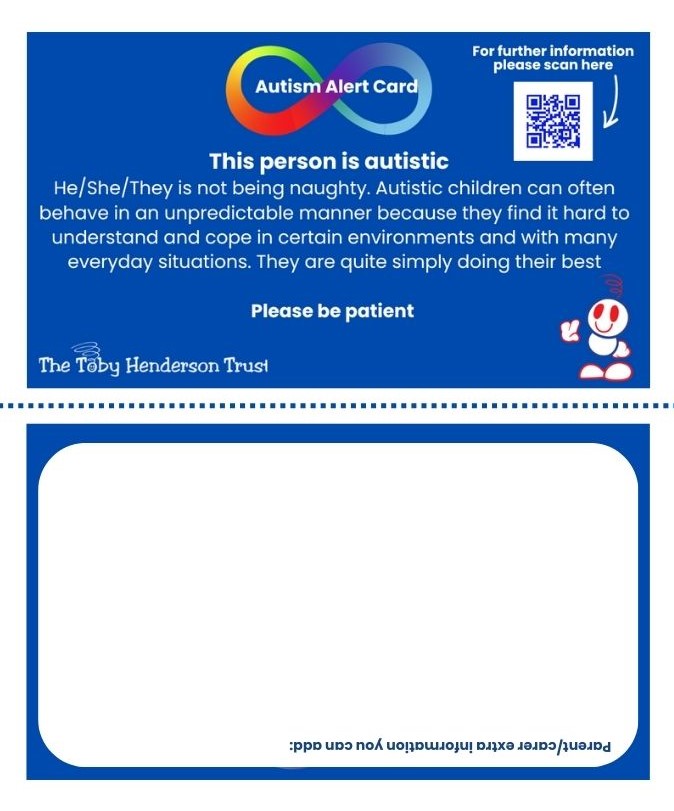
Autism Alert Card
We have designed an autism alert card for families to help autistic individuals communicate their needs and preferences to others in a clear and concise way. This card can be a discreet way for you to let people know that your child is autistic and may benefit from extra time or assistance in certain situations. You can add crucial information about the individual’s needs, such as details on communication preferences, sensory sensitivities, or any specific triggers they may have.
These cards can be printed off and also offer access to our website via the QR code.
For more detail and to access a fully printable version of the autism alert card, please click here.
Spoon Theory – How to manage day to day stress, experiences and demands
Spoon theory by Christine Miserandino is a metaphor often used to explain the energy that autistic people have use to navigate daily tasks. Each “spoon” represents a unit of energy or the ability to cope with day to day demands. Many autistic individuals often need to invest more energy into tasks that neurotypical individuals may find easier to complete.
To learn more about this theory, please click here.
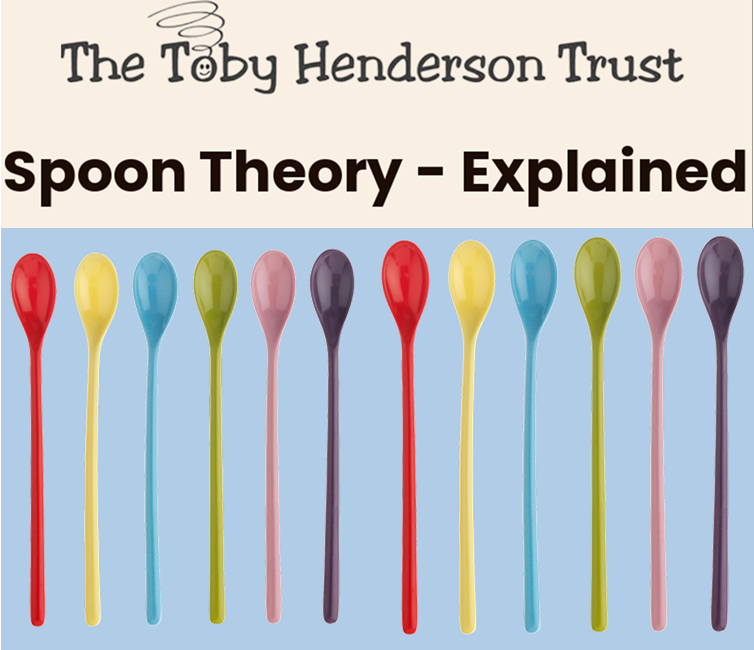
Sensory Processing
We are often asked about sensory processing. We thought these links may be of help to families who are wanting to learn more about sensory processing and strategies for children and adolescents.
The first link is from Northumbria NHS children’s occupational therapy service, who have developed a series of three workshop sessions about sensory processing to improve support for children, their families and carers. Please click the link below.
https://www.youtube.com/playlist?list=PL3TNLGLojzGm-6rSqYVLvwGt–phge43Q
- Session 1 – Introduction to sensory processing
- Session 2 – Exploration of how sensory processing can impact on a day to day basis
- Session 3 – Strategies, equipment and how to use a problem solving tool at home with your child
The link below is from NHS Children’s Therapy Department in Dorset. It covers sensory strategies for the older child and adolescents.
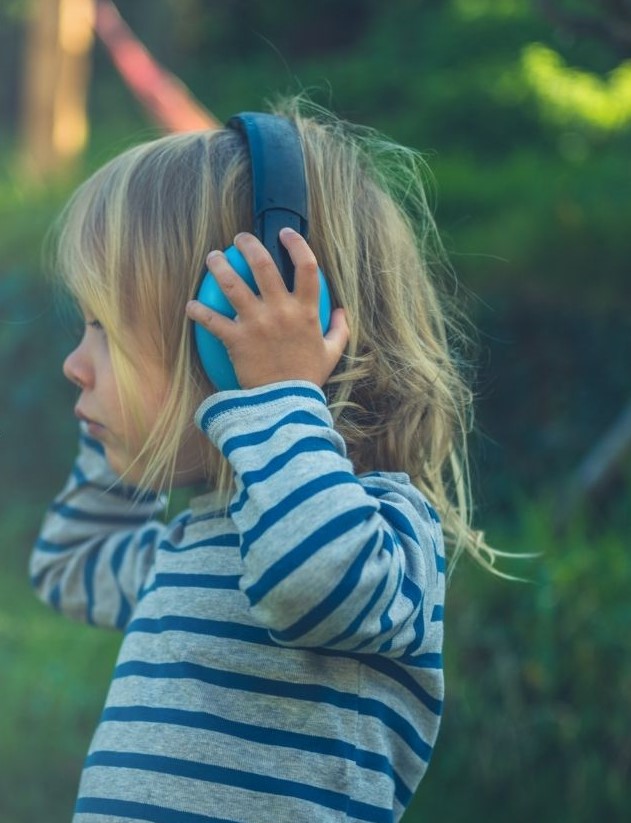
Supporting Families with their Wellbeing
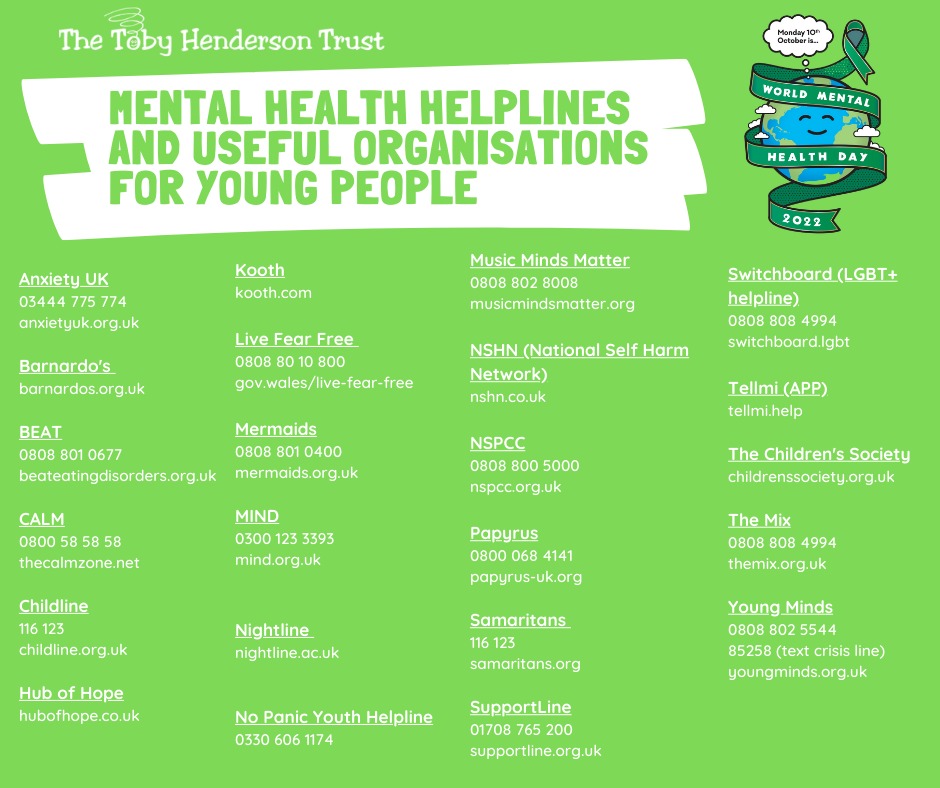
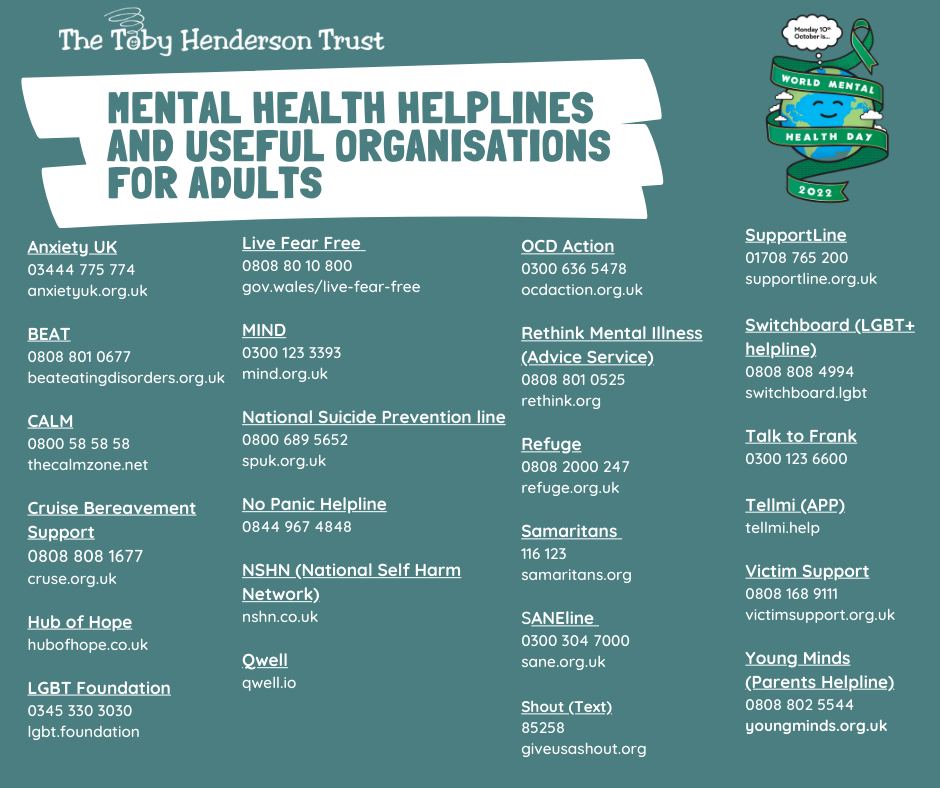
Help with Grounding using Cooks Hook Up Technique
Carolyn Morgan is a Child and Adult Psychotherapist who used to work for The Toby Henderson Trust but still continues to host webinars for our families. Carolyn has most recently become an NVR (Non-Violent Resistance) Practitioner and occasionally hosts a webinar for our families on an “Introduction to Non-Violent Resistance”. Carolyn often makes refer to the Cooks Hook Up technique which can be used by children and adults to help with grounding. This is a useful video, why not give this activity a go.
